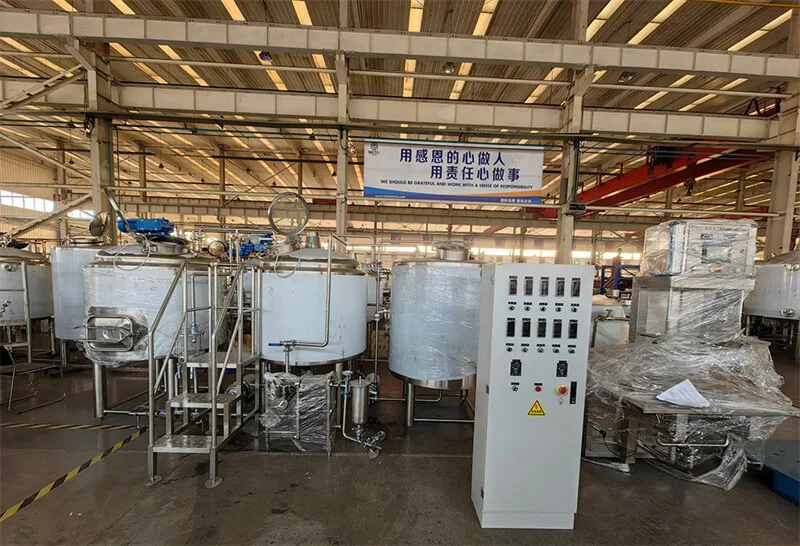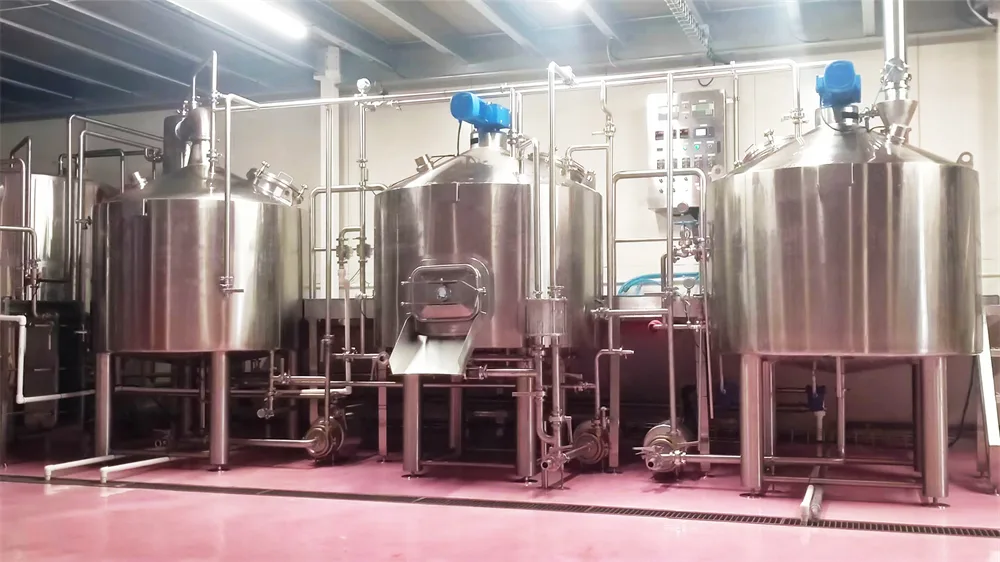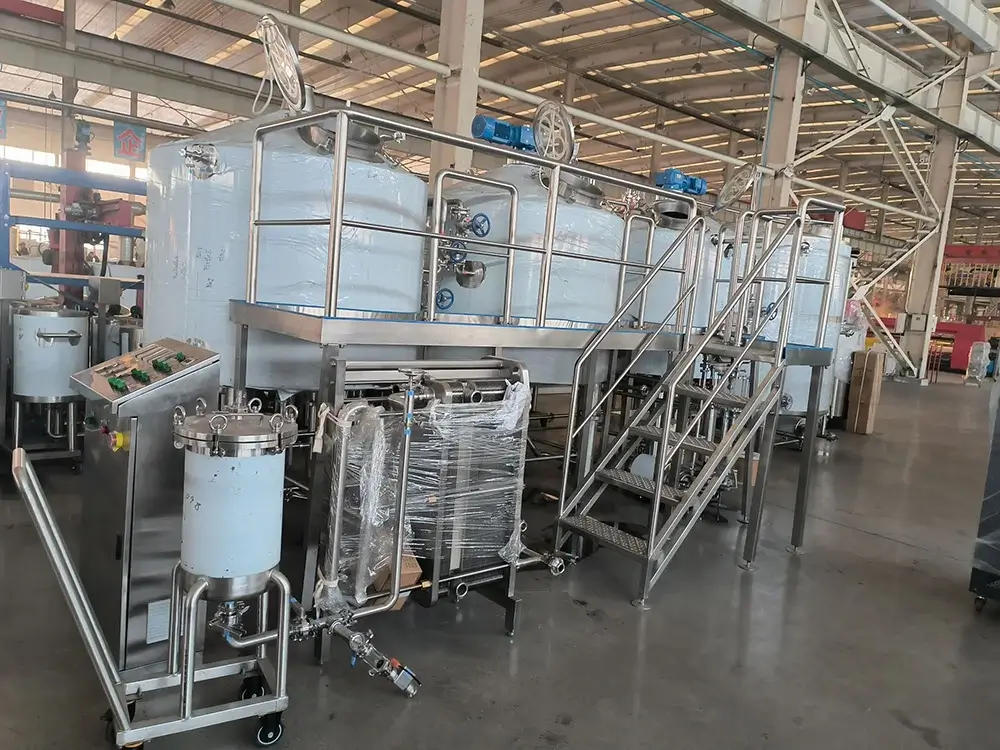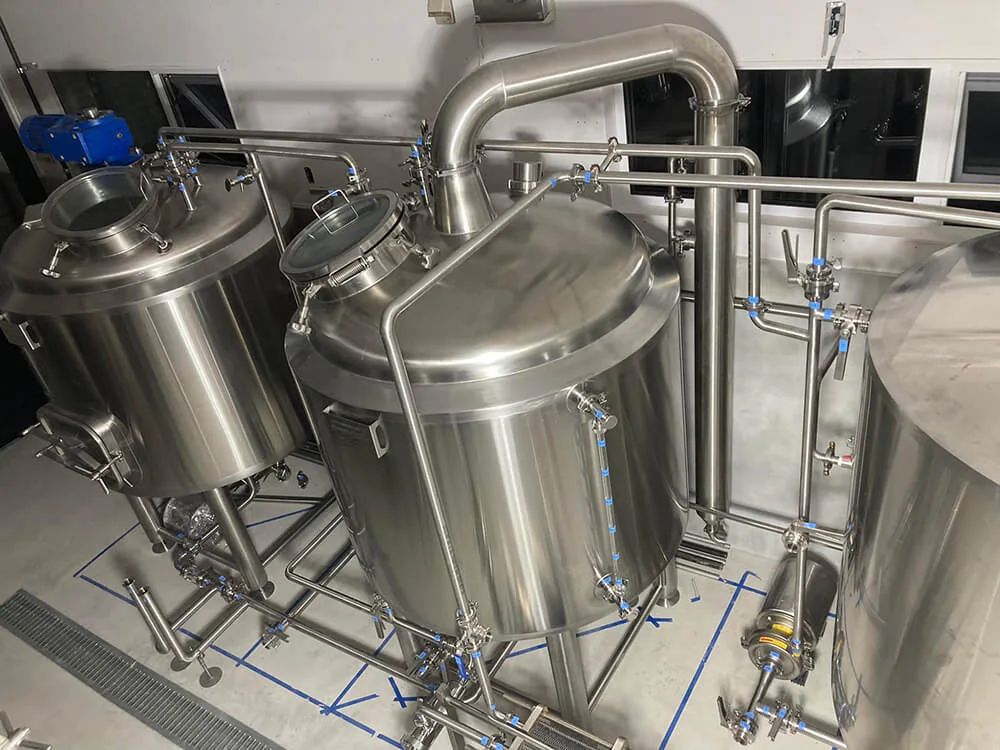地点:日本
A Japanese client chose our complete 500L beer brewery equipment after thorough evaluations. The decision was driven by our extensive industry experience, strong reputation, and ability to provide end-to-end service. From consultation to after-sales, we ensured a smooth project execution and successful brewery launch.
Core Equipment Configuration
The complete craft beer system was tailored to the client’s brewing goals and included:
- Malt Milling System – 200–300Kg/hr capacity for consistent milling results.
- Electric Steam Boiler – 50KG/hr, designed specifically for the brewhouse.
- 500L 2-Vessel Brewhouse System – flexible and efficient for craft brewing.
- 500L Fermentation Tank – with carbon stone, liquid level indicator, and dry hop adding port.
- 冷却系统 – 1500L cold liquor tank, SHP chiller, glycol water pump, and PPR pipelines.
- Digital Control System – for brewhouse, fermentation vessels, BBTs, and glycol tank.
- Kegs & Keg Washer – ensuring hygienic beer storage and distribution.
- CIP Pump – for efficient cleaning and sanitization.
This comprehensive setup delivered professional-grade performance and ensured high brewing consistency.

Service Excellence – A Partnership from Start to Finish
We pride ourselves not only on the quality of our beer brewery equipment, but also on the service we provide at every stage:
1. Pre-Sales Consultation
- Technical team aligned with the client’s brewing vision.
- CAD layouts and flow diagrams for seamless integration.
2. Order Execution
- Real-time production updates with welding and polishing reports.
- Export-ready packaging with moisture-proof and shock-absorbent materials.
3. After-Sales Support
- 24/7 multilingual assistance, including Japanese support.
- Global spare parts supply, ensuring availability of titanium thermo-wells and other key components.
Results & Client Feedback
After installation, the client reported:
- Stable beer quality across all batches.
- Higher production efficiency with reduced downtime.
The brewery successfully launched its beers to market, supported by reliable equipment and professional guidance.
How to Start a Microbrewery
Starting a microbrewery requires careful planning and the right resources.
1. Choose the Right Equipment
Selecting suitable microbrewery equipment is the first step. Consider your expected daily production volume, as this directly determines the size and capacity of the equipment you’ll need.
2. Select a Location
Your location plays a major role in both costs and operations. Monthly rental expenses will vary depending on the size and area. If the space is limited, it’s important to select equipment designed for smaller footprints.
3. Licenses and Renovation
Applying for a brewing license is essential before production begins. In addition, factor in renovation costs if your space needs modifications to meet brewing requirements.
By carefully evaluating equipment, location, and licensing, you can set a solid foundation for launching your microbrewery successfully.
结论
Investing in the right beer brewery equipment is essential for consistent quality, efficiency, and long-term success. Our complete solutions—from brewhouse design to after-sales service—are trusted by breweries worldwide.
👉 If you are considering upgrading or starting your own brewery, we warmly welcome you to get in touch and explore how our equipment can bring your brewing vision to life.



